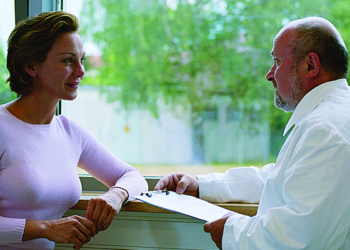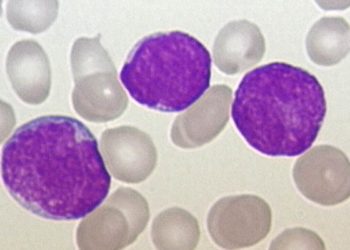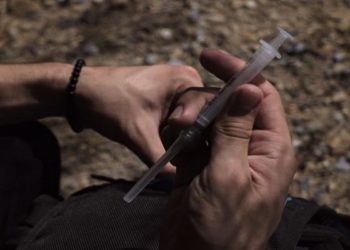Patient Basics: Obsessive-Compulsive Disorder (OCD)
Originally published by Harvard Health.
What Is It?
In obsessive-compulsive disorder (OCD), a person is troubled by intrusive, distressing thoughts (obsessions) and feels the pressure to carry out repetitive behaviors (compulsions).
Neuroscientists believe that the brain pathways involved with judgment, planning and body movement are altered in OCD. Environmental influences, such as family relationships or stressful events, can trigger or worsen OCD symptoms.
OCD affects an estimated 2% to 3% of people in the United States. The percentage is about the same in Canada, Korea, New Zealand and parts of Europe. About two-thirds of people with OCD have the first symptoms before they are 25 years old. Only 15% develop their first symptoms after age 35. There is strong evidence that the illness has a genetic (inherited) basis, since about 35% of people with OCD have a close relative who also has the condition. Although 50% to 70% of patients first develop OCD after a stressful life event – such as a pregnancy, a job loss or a death in the family – experts still do not understand exactly how stress triggers the symptoms of this illness.
Sometimes people with OCD manage their obsessions without giving any external sign that they are suffering. Usually, however, they try to relieve their obsessions by performing some type of compulsion: a repeated ritual that is aimed at soothing their fears. For example, a woman who has the obsession that her hands are dirty may develop the compulsion to wash them 50 times a day. A man who fears that his front door is unlocked may feel compelled to check the lock 10 or 20 times each night.
Symptoms
The two defining symptoms of OCD are obsessive thoughts and compulsive rituals. The symptoms are bad enough to be time-consuming, cause functional impairments or be significantly distressing.
Obsessions are persistent, repeated, anxiety-provoking or distressing thoughts that intrude into a person’s consciousness. Obsessions vary and can relate to any kind of fear. Here are some common ones:
- Fear of contamination – Constant worry about having dirty hands or clothing, or about catching or spreading germs.
- Fears related to accidents or acts of violence – Fear about becoming a victim of violence (an unlocked door that admits an intruder) or suffering accidental bodily harm (an oven is not turned off or a cigarette is not properly snuffed out).
- Fear of committing an act of violence or sexual misconduct – Fear of losing control and doing harm to others, or committing a harmful or embarrassing sexual act. For example, a loving mother worrying about suffocating her infant, or a respectable businessman fearing he will take off his clothes in a meeting.
- Fears that center on disorder or asymmetry – An irresistible need for order, anxiety about the smallest out of place detail. Examples are socks not being aligned “properly” in a drawer or food arranged “incorrectly” on a dinner plate.
Often, an adult with OCD will recognize that the obsessive thoughts are not realistic and will try to ignore them or suppress them. But sometimes they get temporary relief by performing a compulsive ritual.
Compulsive rituals are persistent, excessive, repetitive behaviors. The goal of the ritual is to reduce the anxiety caused by obsessive thoughts. Examples include:
- Repeated washing or bathing
- Refusal to shake hands or touch doorknobs
- Repeated checking of locks or stoves
- Compulsive counting of objects
- Over-organizing of work or household items
- Eating items of food in a specific order
- Repeating specific words or prayers
Anyone may feel compelled to recheck a locked door or wash hands to assure cleanliness. By themselves, such behaviors do not mean a person has OCD.
In OCD, the obsessions and compulsions are excessive and distressing. They are time-consuming, sometimes eating up several hours each day. They may interfere with personal relationships, as well as performance at work or school. Some compulsions may cause physical injury. For example, compulsive hand washing can lead to chapped hands and dermatitis, while excessive tooth brushing can cause torn, bleeding gums.
Diagnosis
Some people with OCD seek help from a primary care physician when symptoms begin to affect their health or interfere with life. An adult with compulsive hand washing may visit a dermatologist because of cracked, bleeding fingers, or a parent may consult a pediatrician when a child with OCD begins to be controlled by particularly intense rituals (for example, counting or checking).
Depressed mood is very common in OCD. In fact, a person may talk about feeling depressed instead of discussing OCD symptoms that are embarrassing or otherwise difficult to describe.
If your doctor suspects that the problem is a psychiatric illness, he or she will likely refer you to a mental health professional for evaluation and treatment.
A mental health clinician will diagnose OCD by asking you about
- Obsessive thoughts and compulsive behaviors
- Psychological distress
- Consequences in important relationships
- Consequences at work and play
- Possible symptoms of other psychiatric illness
Expected Duration
OCD rarely disappears spontaneously, and its symptoms may last for years if they are not treated properly. In fact, it is common for a person with OCD to have the problem for 5 to 10 years before seeing a psychiatrist. Getting help sooner can reduce the impact of the illness.
Prevention
There is no way to prevent OCD, but the negative effects can be limited if the illness is detected and treated early.
Treatment
The most effective treatment for OCD is to combine psychotherapy and medications.
Your doctor may also offer treatment for any other conditions that may be contributing to the problem, such as a medical problem or depression. You may need to try more than one approach before you find the one that is right for you.
Antidepressant Medications
Some antidepressants are effective for obsessive-compulsive disorder. Selective serotonin reuptake inhibitors (SSRIs), such as fluvoxamine (Luvox), fluoxetine (Prozac), sertraline (Zoloft), paroxetine (Paxil), and citalopram (Celexa) are commonly used.
Also, tricyclic antidepressants also may be effective. The one most used for OCD is clomipramine (Anafranil). Although this drug may be slightly more effective than the SSRIs for treating OCD, it sometimes has side effects that are more difficult to tolerate. Nonetheless, it is a good option.
Psychotherapy
A number of psychotherapy techniques may be helpful, depending on the person’s preference, events that may have triggered the problem, and the availability of family and other social support.
It’s important for a person suffering with OCD to be educated about the illness and to get support from friends, family or support groups.
Cognitive behavioral therapy is designed to help a person with OCD recognize the unreasonableness of the fearful, obsessive thinking. The therapist sometimes teaches specialized techniques that can help extinguish the compulsions. Some examples:
- Exposure and response prevention (ERP) – A person is exposed to situations that provoke obsessive thoughts. He or she is then prevented from performing the usual compulsive ritual. For example, a person may be asked to touch a “dirty” shoe, then be told to wait before washing his or her hands. The person will practice this behavior daily, gradually increasing the waiting time and keeping a diary of his or her efforts.
- Habit reversal – A person is asked to substitute a different response, such as deep breathing or fist clenching, for the usual compulsive ritual.
- Thought stopping – The person uses some form of distraction whenever an obsessive thought occurs. One common method is to say the word, “Stop,” and snap a rubber band that’s worn at the wrist.
- Saturation – The person concentrates intensely on the obsessive thought until the thought loses its impact and becomes meaningless.
Psychodynamic, insight-oriented or interpersonal psychotherapy can help a person sort out conflicts in important relationships or explore the history behind the symptoms, though insight itself is not likely to have an impact on severe symptoms.
Family therapy and group therapy also have been used successfully to treat some people with OCD. Because this disorder can be very disruptive to family life, family therapy often is recommended.
When To Call a Professional
Since the symptoms of OCD seldom disappear without treatment, you should contact your primary care doctor whenever obsessive thoughts or compulsions cause you significant distress or discomfort, interfere with your ability to have a normal life at home or work, or cause you injury. Your primary care doctor will refer you to a psychiatrist for appropriate and effective treatment.
Prognosis
Since OCD can be a chronic (long-lasting) condition, ongoing treatment may be necessary.
The outlook however is good. About 50% of patients improve and about 10% recover completely. Only 10% get worse in spite of therapy.
Additional Info
American Psychiatric Association
1000 Wilson Blvd.
Suite 1825
Arlington, VA 22209-3901
Phone: 703-907-7300
Toll-Free: 1-888-357-7924
Web site: http://www.psych.org/
National Institute of Mental Health
Science Writing, Press, and Dissemination Branch
6001 Executive Blvd.
Room 8184, MSC 9663
Bethesda, MD 20892-9663
Phone: 301-443-4513
Toll-Free: 1-866-615-6464
TTY: 301-443-8431
TTY Toll-Free: 1-866-415-8051
http://www.nimh.nih.gov/








